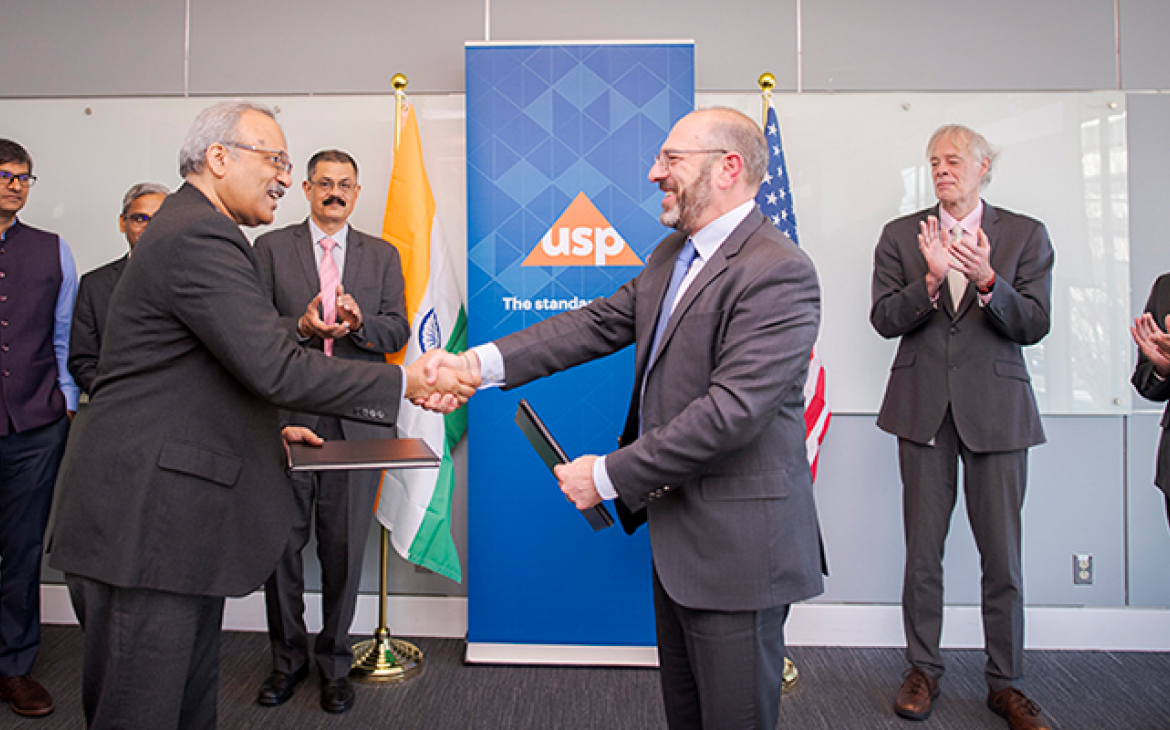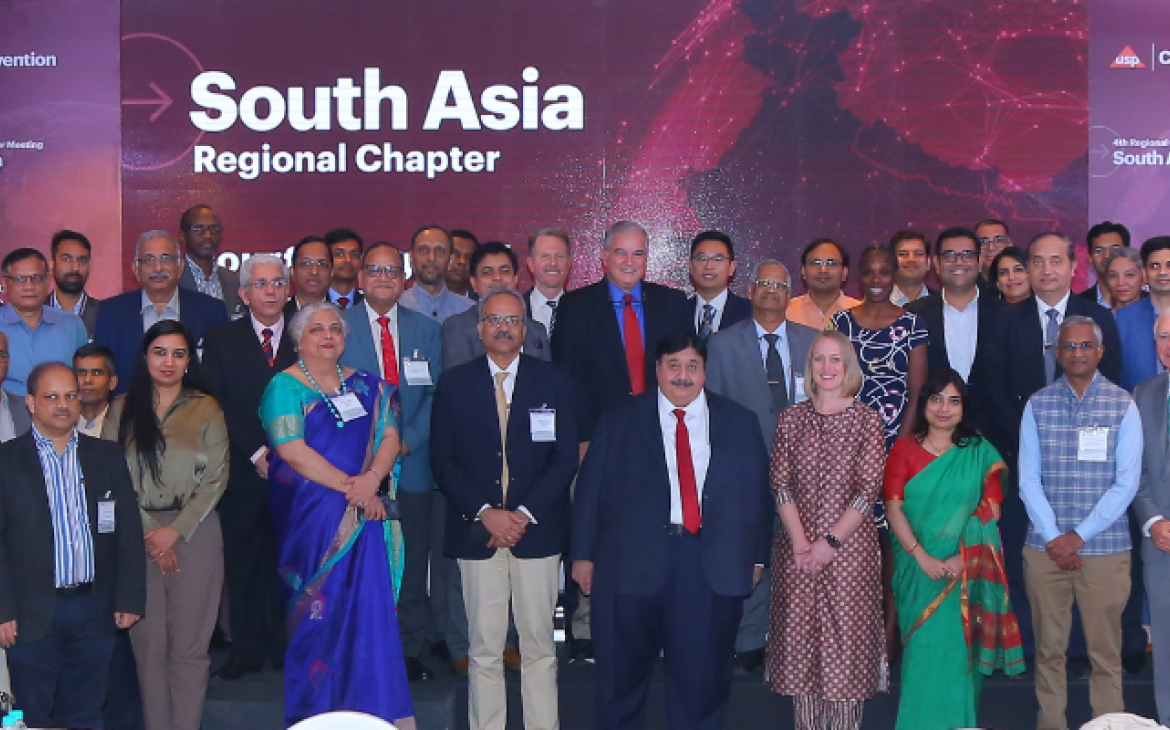To those in the pharmaceutical industry, USP may be both familiar and a little mysterious. We’re all aware that USP documentary and reference standards help ensure the quality of medicines in the United States and around the world. However, the inner workings of USP may not be as well known by outsiders.
For a long time, it wasn’t entirely clear to me. As an analytical chemist, I began my career at a national lab and spent the next 26 years in the pharmaceutical industry doing research and development and trouble-shooting in manufacturing and product development.
How I got involved
In 2008, I became closely engaged with USP while working on an industrywide quality issue. As part of our efforts to sort out quality concerns, I shared my company’s data with USP (with permission). USP then asked me to join the Expert Panel charged with investigating and resolving the problem. Eventually, I became co-chair of one of USP’s Expert Panels. After I retired in 2014, I was elected to USP’s Council of Experts and became chair of the Complex Biologics Expert Committee.
It was because of my personal involvement that I came to understand why and how USP became recognized as the definitive source for reference and documentary standards. It all begins with a robust and collaborative scientific process involving contributors from academia, industry, and government working together with USP scientists. I was happy to contribute.
Continued engagement
Though my initial interest in USP had a specific purpose, as I continued, I enjoyed my association with the organization because of its focus on drug quality and safety. USP is responsible for creating public standards that reflect quality metrics and critical quality attributes of drugs, along with the necessary testing and reference standards for pharmaceutical quality assurance — to help the industry ensure the quality of generic drugs.
With my increasing involvement, I gained a better understanding of how USP develops its standards. The process involves rigorous collaboration among staff members, manufacturers, Expert Committee members, and Expert panelists — volunteers from the industry, health care, and academia, as well as government representatives. USP’s step-by-step process to develop its documentary and reference standards brings together the knowledge of diverse experts in a rigorous and transparent process. This insight increased my confidence in the quality of USP Reference Standards as a means of improving global public health — a lifelong interest of mine as a scientist working in the pharmaceutical industry.
Personal and professional benefits of becoming a panelist
Becoming involved in USP was a great supplement to my career, providing personal and professional development opportunities as well as networking advantages. On the Expert Panel, I took great satisfaction in contributing improved methodology to drug testing.
Being a chair of a Committee is even more exciting because I have been able to help define policy, since USP staff use the Council of Experts as a sounding board for new ideas. I’ve also come to have much greater understanding and appreciation for the extent of USP’s outreach — the American Medical Association (AMA), the American Pharmacists Association (APhA), the U.S. Congress, etc. — and the organization’s size and complexity. In addition, those on Committees and Panels may have opportunities to travel and teach, develop course work, or give talks to help USP customers be successful with their quality programs.
Companies benefit from employees working with USP
USP relies on input from a broad base of companies making the drug under consideration. Industry personnel come to the Committees and Panels as independent scientists and professionals contributing their expertise to find the most practical approach to developing a documentary or reference standard.
Incorporating data and techniques from scientists with such diverse experience in technology, regulations, and practice allows experts to select an approach that can work industrywide and will ultimately translate into higher quality products.
Pharmaceutical companies recognize the benefit of enabling their personnel to help USP. Not only is there value in the high-quality USP documentary and reference standards being created, but direct involvement in the Expert Panel is an opportunity to share their company’s perspectives on the new standard being created. And while panelists contribute technical knowledge to varying extents, as desired, understanding USP’s intention or explaining their company’s method and having USP adopt it can minimize internal changes down the road that can require time and resources.
Choose how to share your expertise
Scientists and professionals in the pharmaceutical industry can contribute to USP in various ways. The most common are:
- Serve on an Expert Committee in charge of a sector of drugs and materials: USP Expert Committees are made up of volunteers from government, health care, industry, and academia. They consider health care quality overall, particularly in chemical medicines, biologics, excipients, and other product groups likely to affect public health. In collaboration with USP, these committees vote on methods and develop documentary standards. The process is transparent: Meetings are open to the public and meeting content is published in Pharmacopeial Forum for public comment. We are now recruiting for the 2020-2025 cycle of volunteers. Visit and apply.
- Serve on an Expert Panel on a subject demanding special expertise: A USP Expert Panel is a group led by Expert Committee members who pull in additional specialists from industry or academia on a very focused topic. These groups may be tasked with writing a new documentary standard or helping to develop chemical or analytical methods for that documentary standard. Expert Panels provide their advisory work to Expert Committees for consideration to be incorporated into USP standards.
A typical USP Expert Committee member may spend a couple hours a week on average in meetings while an Expert Panel may meet more frequently than this for 18 months or so, until the designated project is complete. Panel members may be recruited based on Expert Committee member recommendations and, often, USP-industry liaisons. Employees of multiple companies that manufacture the drug under consideration are often tapped to contribute their expertise.
Final Thoughts
Continuing to volunteer at USP has been a large part of my professional connection to industry since retiring. It’s helped me to stay current and connected within the pharma industry, sustain professional relationships, and continue to help the industry meet its goals. I hope to be re-elected to the Council of Experts in the 2020-2025 cycle, and I encourage my industry and academic colleagues to apply, too.
If you’d like to be a part of USP’s mission to improve and maintain quality standards for drugs and contribute to global human health, think about volunteering at USP. It made my career longer and richer, and you’ll be able to develop a deeper appreciation for the value in every USP standard.


